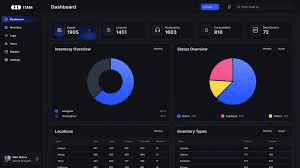Modern GPS monitoring devices play an important role in guaranteeing road safety. These systems have undergone tremendous modifications to meet the demands of current drivers and road safety, and they now provide groundbreaking next-generation capabilities.
The present GPS tracking world is complex and competitive, from the SOS function to real-time fuel monitoring to the engine cut-off option, which allows you to switch your engine off from your smartphone. The search for a suitable GPS Tracking system may be daunting and complicated. There are several alternatives available.
Read on to learn more about modern GPS tracking and some of the important features these systems should have.
What Is GPS Tracking?
GPS tracking stands for Global Positioning System. It consists of a network of 24 satellites in orbit and ground-based equipment that can pinpoint the precise position of a person or anything on Earth. GPS tracking collects three types of data: location, navigation, and time.
Important Features GPS Tracking Systems Should Have
-
Real-time location tracking
The most fundamental, and certainly the most important function that any GPS solution should have is real-time position tracking. With real-time location tracking, fleet managers can always know where their vehicles, drivers, and other assets are. This allows them to react quickly to events and retrieve stolen cars or valuables.
However, not all tracking technologies available today provide “real-time location tracking.” Some vendors give GPS tracking gadget updates regularly. Simply said, you get updates two to three minutes after events occur, therefore make sure your tracker provides real-time information.
-
Innovative analytics and reports
Effective GPS systems give organizations real-time information about fleet operations, allowing them to make educated decisions. Comprehensive analytics and data that can be viewed at any time should be equipped in the GPS to do this.
The dashboard provides you with a perfect view of your fleet. This will allow you to make quick decisions if anything goes wrong. For example, if one vehicle is speeding or drifting off track, the system’s display will alert you and allow you to take immediate action.
-
Track vehicle history
A good GPS tracking system should offer a detailed history of a vehicle’s whereabouts. Depending on how frequently you want the reports to be created, the reports will show you where the car has been in the recent few hours, days, or weeks. This allows you to quickly establish whether a certain vehicle has been deviating from its route, speeding excessively, or making unauthorized journeys outside of business hours.
A competent GPS tracking system will be able to provide you with a record of the last 90 days that should include information like excessive idling periods, speeding violations, a vehicle’s starts and stops summary, total distance covered, and vehicle utilization and upkeep.
Many current GPS devices provide a dashboard where you may examine graphical reports. You may make data-driven decisions for your business by analyzing data from these reports.
-
Customizable alerts
The list of essential vehicle GPS tracking system features includes customizable fleet management alerts at the top. Receiving real-time notifications about driving behavior or vehicle diagnostics can assist in decreasing driving danger while also improving fleet efficiency, both of which benefit the bottom line.
Real-time tracking warnings like lost gasoline from improper driving behaviors or excessive idle hours can also provide insight into areas for improvement. These modifications will boost fleet savings by reducing fuel costs by 5-10%.
-
Monitoring driver behavior
Failure to monitor your drivers’ activities may be detrimental to your company’s financial line. Your drivers may slack off or participate in unproductive activities if they are not supervised.
But using a decent GPS tracking system can help you avoid these concerns. You can receive information on a range of driving patterns, risk or inefficient driving behavior alerts, and allowing to take critical actions to improve driving with the help of a good GPS tracking system.
-
Geofencing
The geofencing function takes alert personalization to the next level. You will be able to draw geographical borders known as geofences on the map around a specific region based on your preferences.
You may receive an instant alert on your phone whenever the car enters or departs the geofence. This alert may assist you in improving operational efficiency, security, and staff growth.
-
Scheduling vehicle maintenance
Since your operation vehicles are its lifeblood, keeping them functioning is always a key responsibility. GPS Vehicle tracking systems that can assess the health of your cars and assets can help you keep track of them.
This feature recognizes new maintenance concerns, deals with them as quickly as feasible, and ensures that preventative maintenance is scheduled and completed on time. If one or more cars are out of service for a lengthy period, the impact on your organization may be severe.
Using a vehicle GPS tracking system will allow you to effortlessly track fleet maintenance without concern of missing out on any one vehicle in the midst of expanding fleet size.
-
User-friendly interface that is easy to use
Good GPS tracking systems have easy-to-use user-friendly interfaces. You will gain amazing capabilities using a simple user interface, such as group-wise access without the need for several accounts, a comprehensive view of your whole fleet, and historical as well as real-time data reporting. A well-designed interface assists you in making the best decision by giving relevant information.
-
Route optimization and scheduling
An organization’s time and money can be saved by minimizing the inconveniences and possible pitfalls associated with manually organizing drivers’ routes with the help of GPS vehicle tracking systems.
Most businesses struggled with overlapping routes, drivers traveling too far, or failing to send the next vehicle to the next assignment before they started to use GPS tracking technologies.
Using a GPS tracking system, fleet managers can see where the drivers are heading and the route they take at the start of each day. They may also devise the most cost-effective routes while taking into consideration customer preferences and specific delivery constraints.
Conclusion
When it comes to what a GPS tracking system can do, these top features are only the tip of the iceberg. The key point to remember is that the functionality you’ll want from such a system is entirely reliant on the business problems you’re attempting to address. So, if you discover that any of the above-mentioned features can assist your fleet in a certain location, check into a suitable vehicle monitoring system that can meet your demands. Matrack Fleet Tracking Solutions are a great way ahead.


































